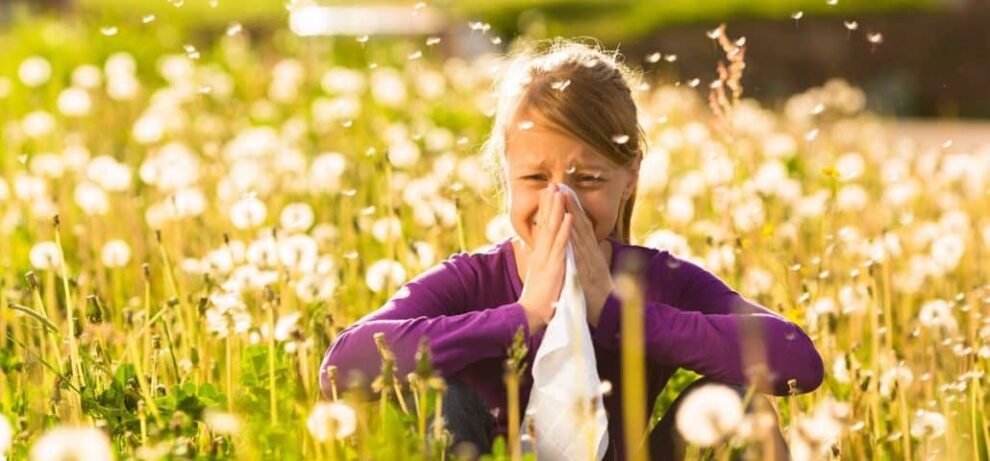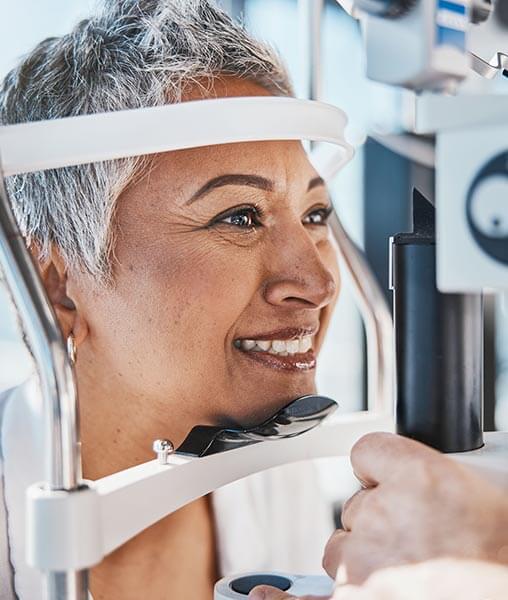Posted by: Albany Cornea | Center For Eye Care Excellence in Uncategorized

Spring is finally here, but with warmer weather, flowers, and budding trees, come those dreaded seasonal allergies.
According to the American College of Allergy, Asthma, and Immunology, 50 million people in the United States have seasonal allergies, and its prevalence is increasing—affecting up to 30% of adults and up to 40% of children. In addition to having symptoms of sneezing, congestion, and a runny nose, most of allergy sufferers also experience itchy, watery, red eyes as well as swollen eyelids. Some may also experience blurred vision as well or feel as if they have something floating in their eye. So what can you do to both prevent and treat your symptoms? Here are a few ideas to help soothe your eye irritations this allergy season.
Check-in with Your Physician
The first step to relieve your symptoms is an evaluation with your eye doctor to determine whether it is indeed allergy related. It’s vital to rule out other eye-related problems such as an infection (particularly pink eye as it tends to pop up during the spring season), inflammation, or dry eye syndrome, which all require entirely different treatment options.
Avoid Allergens
This is easier said than done (you can’t avoid the outdoors!), but there are things you can do to help keep those allergies at bay:
Change your HVAC filters before turning on your cooling system for the first time
Check pollen levels online as part of your daily routine and try to do your errands on days when levels are lower
Keep the windows closed in the spring, to avoid allergens blowing in
Spring clean inside and outside your home before the weather warms up
Clean bedding and upholstered furniture regularly for dust mites and other potential sources of allergens
Avoid Wearing Contacts or Switch to Single Day Use
If you are prone to allergy-related eye irritation, stop wearing your contacts for the first month or so of spring weather. While contacts do not cause allergy symptoms, they can aggravate any symptoms that do appear. If you must wear contacts, switch to daily wear lenses so they can be thrown out each night and eliminate prolonged exposure to allergens that make contact with your lenses. And, if you do want to switch over to full-time glasses instead, schedule an eye exam so we can make sure your prescription is accurate.
Check with Your Doctor About Eye Drops
Over-the-counter preservative-free artificial tears can be used to help clean the surface of your eye if you’re outside for prolonged periods of time. Decongestant or antihistamine drops can also help control redness, itchiness, and other symptoms. But before you begin a new eye health regimen, consult with your doctor to see what brand and formula may be best for you.
Try Cold Therapy
Allergies can bring on redness, tenderness, and swelling around the eye. Cold therapy can soothe these irritating symptoms and even improve the appearance of your inflamed skin around the eye. Soak a soft cloth in cool water, wring it out, and place it directly over your eyes. Put it in the refrigerator for 10-15 minutes for a longer lasting cool compress.
Wash Face and Hands Often
Did you wash your hands a lot this winter to keep illnesses at bay? Keep it up in the spring to help with your allergies. In addition, wash your face twice a day and rinse the area around your eyes as needed. Washing your face and hands regularly will reduce the concentration of allergens on your skin.
Grab Some Shades
If you have to be outdoors, grab sunglasses with large wrap-around lenses. This will help protect the surface of your eyes from direct contact with allergens. And, if you’re an athlete, bike rider, or ride on a motorcycle or in convertible, good sunglasses are extremely important for blocking pollen from entering your eye or adhering to your lashes.
Ask Us About Allergy Testing
We are able to conduct allergy testing right in our office! If we feel your case is extreme enough, we’re happy to prescribe topical ophthalmic drops as well as oral agents to help combat your seasonal allergies.
Spring is a beautiful time to get out and enjoy the budding trees, warm breezes, and green grass; however, they can increase allergy symptoms in and around your eyes. A visit to the eye doctor can offer a diagnosis and a customized treatment plan to help you get on with life.

